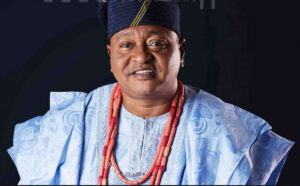Been and Being Again – Tribune Online
[ad_1]
Sample 1: “…adding that Muhammadu Buhari would not have being the president of Nigeria in 2015, if he had not played a leading role in his emergence and victory…adding that Bola Ahmed Tinubu who was regarded as a godfather, is now been used to make fun.” (Why do you think APC is afraid to nominate my junior brother? Opera News, 3 June, 2022)
Two grammatical points are of interest to us: “would not have being president” and “is now been used.” In each of the two phrases, the writer is unable to differentiate between the forms been and being. In the first phrase, the correct form is been (i.e,“would have been president”). In the second, the appropriate form is being (ie“is now being used”).
To understand the nature of the error, we need to sketch and illustrate the two rules that are here confused. First is the rule of the perfect tense situated in the structure of the passive tense. The perfect tense is of the following nature: have/has/had plus a past participle form of the verb. Let’s read the following sentences: 1) David has written the letter. 2) The girl has spoken the truth. 3) The men have broken their promise. 4) The officers have prepared the report. 5) The boy had released the secret before the warning came. 6) The police had arrested the man before the court order was vacated.
Those are examples of the perfect tense outside the passive structure. The same grammatical principle is maintained in the context of the passive structure. In this case, the structure is of the form: have plus been, where been represents the past participle. Now read the following sentences: 1a) The company has bought new cars (active sentence in the perfect tense) 1b) New cars have been bought by the company (passive sentence in the perfect tense). 2a) The police have arrested the criminal. (active sentence in the perfect tense) 2b) The criminal has been arrested by the police. (passive sentence in the perfect tense) 3a) That transaction has created many fraudulent loopholes. (active sentence in the perfect tense) 3b) Many fraudulent loopholes have been created by that transaction. (passive sentence in the perfect tense) 4a) The central government had constructed numerous roads. (active sentence in the perfect tense.) 4b) Numerous roads had been constructed by the central government. (passive sentence in the perfect tense) 5a) Soldiers have invaded the crisis-torn zone (active sentence in the perfect tense) 5b) The crisis-torn zone has been invaded by soldiers. (passive sentence in the perfect tense) 6a) The library has stocked over six million books. (active sentence in the perfect tense) 6b) Over six million books have been stocked by the library. (passive sentence in the perfect tense)
The second rule is that of the continuous or progressive tense. The rule is of the nature: be plus the ing form of the verb (ie is going; was singing; were washing; are training; etc). Let’s read the following sentences: 1a) The church is planning a one-week revival programme. (active sentence in the progressive tense) 1b) A one-week revival programme is being planned by the church. (passive sentence in the progressive tense) 2a) The people were distributing seditious pamphlets. (active sentence in the progressive tense) 2b) Seditious pamphlets were being distributed by the people. (passive sentence in the progressive tense) 3a) The scientists are examining the specimen. (active sentence in the progressive tense) 3b) The specimen is being examined by the scientists. (passive sentence in the progressive tense). 4a) The girl was washing the clothes. (active sentence in the progressive tense) 4b) The clothes were being washed by the girl. (the passive sentence in the progressive tense) 5a) The musician is composing new songs. (active sentence in the progressive tense) 5b) New songs are being composed by the musician. (passive sentence in the progressive tense) 6a) The lecturer isgrading the scripts. (active sentence in the progressive tense) 6b) The scripts are being graded by the lecturer. (passive sentence in the progressive tense.)
Now let’s have more examples from another effort in this place: structures: 1a) The Boko Haram insurgents have abducted over two hundred school girls. (active sentence) 1b) Over two hundred school girls have been abducted by Boko Haram insurgents. (passive sentence) 2a) Almost all the political parties have conducted primary elections. (active sentence) 2b) Primary elections have been conducted by almost all the political parties. (passive sentence) 3a) Armed robbers have taken over our cities. (active sentence) 3b) Our cities have been taken over by armed robbers. (passive sentence) 4a) Members of the National Conference had recommended fundamental changes in the constitution. (active sentence) 4b) Fundamental changes in the constitution had been recommended by members of the National Conference. (passive sentence). 5a) The police have arrested the criminal elements in the group. (active sentence). 5b) The criminal elements in the group have been arrested by the police. (passive sentence). 6a) The security agencies have addressed the issue of security challenges. (active sentence) 6b) The issue of security challenges has been addressed by the security agencies. (passive sentence)
In each of the six pairs of sentences, both the active and the passive sentences are in the perfect tense: have plus the past participle. In addition, the passive sentence contains the form, been: have been, has been, and had been.
Furthermore, the form been can also occur in the following contexts: 1) You have been a wonderful host. 2) It has been an exciting experience. 3) It has been some time! 4) She has been a little careless. 5) She has been somewhat unlucky in her choice of husband.
At this point we need to make a distinction between the forms been and being. The form being occurs in the context of the continuous or progressive tense within the passive structure. That is, two conditions are absolutely essential: the progressive/continuous tense and the passive structure. The continuous/progressive tense is marked by: a relevant be form plus the ing form of the verb. Please note the finaling in the form being.
Now let’s read the following pairs of sentences: 1a) Farmers are harvesting yams. (active sentence) 1b) Yams are being harvested by farmers. (passive sentence) 2a) We were pursuing wrong ends. (active sentence) 2b) Wrong ends were being pursued by us. (passive sentence) 3a) The girls are writing a play. (active sentence) 3b) A play is being written by the girls. (passive sentence) 4a) The engineers are building new structures. (active sentence) 4b) New structures are being built by the engineers. (passive sentence) 5a) The pioneer workers are experiencing grave challenges. (active sentence) 5b) Grave challenges are being experienced by the pioneer workers. (passive sentence) 6a) Members of the committee were discussing the matter. (active sentence) 6b) The matter was being discussed by members of the committee. (passive sentence)
Please note the following segments of the passive sentences: are being; were being; was being; is being. It is mandatory for the word being to be preceded by: is, are, am, was, were. These are known as be-forms.
The word being can also occur in the following contexts: 1) The man is being unrealistic. 2) You are just being childish. 3) The politicians are simply being dishonest.
Even in these contexts, the word being is preceded by a relevant form of be. Let’s reiterate: The word been is regularly and invariably preceded by have-forms: have been; has been; had been. The word being is regularly and invariably preceded by the relevant forms of be: is being; are being; am being; was being; were being.
Let’s not forget that our starting-point is the defective structure: having being. From the discussion and illustrations so far, we should know that the structure should now be: having been.
Before leaving this point, it may be expedient to illustrate the usage of the form having: 1) Having been traumatized by the death of her husband, the woman does not seem inclined to re-marry soon. 2) Having been dismissed from service, the man cannot take up any other job from any government establishment. 3) His licence having been withdrawn, the surgeon cannot practise in any part of the world. 4) Having been introduced to literary studies early in his educational career, the scholar has grown to love literature with a passion. 5) Having been born into a royal family, the prince understands perfectly how feudalism works. 6) Having been trained in one of the best universities in the world, the man demonstrates a scholarship that commands respect across the globe.
READ ALSO FROM NIGERIAN TRIBUNE
[ad_2]














Post Comment